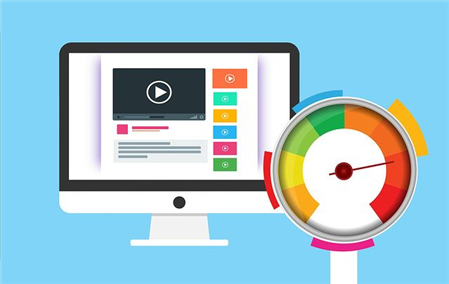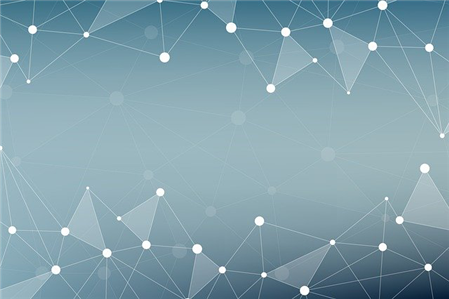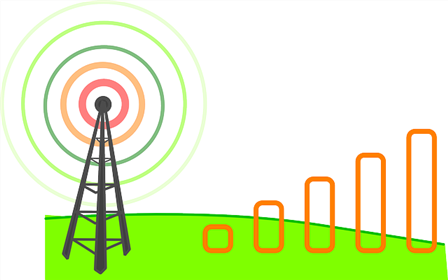5G vs 4G – What is the Difference
If you would like to find out what is the difference between 4G and 5G, this guide is going to help you do it. There are differences in items that these technologies use and here we talk about those differences in detail for you.
5G Network
4G is soon going to be replaced by 5G and people have questions regarding what differences they are going to see. It is obvious to have these questions and concerns, as after all, your phones and other devices are going to connect to the revolutionary new 5G technology. In a nutshell, you are going to see a ton of differences between 4G and 5G.
In this guide, we talk about some of the differences between 4G and 5G that affect most users. This includes the changes in your download and upload speeds, the latency times, mobile devices, and prices. You are going to find out how feasible this new technology is going to be for you here in this post.
Part 1. How Does 5G Work Differently Than 4G
5G works differently in many aspects of mobile networking than 4G. As an end-user, you may not directly get to see all the impacts that this technology will have on your devices, but there are certain things that you will surely notice changes in.
The following are some of the main things that affect you, as a consumer, with the 5G technology.
1. 5G vs. 4G: Speed
One of the main areas where you are going to notice significant changes in 5G is your data transfer speeds. 4G allowed you to reach a certain peak speed for your file upload and download tasks. 5G is going to take those speeds to a completely new level.
In the beginning, you are going to experience speeds in the range of 50 Mbps and 2 Gbps. However, the fastest speed will only be achieved at peak times. This technology is able to deliver these speeds because of the mmWave that it uses. AT&T has reported speeds up to 1.8 Gbps on their 5G network the last year.

Speed Difference Between 4G and 5G
4G was able to deliver speeds of up to 150 Mbps of download and 50 Mbps of upload speeds at peak times. As you can clearly see, the difference in the speeds is huge. You are basically getting twenty times higher speeds than 4G with your 5G carrier.
Various networks have variable download and upload speeds. Sprint offers up to 185 Mbps download speeds on 5G and 32.5 Mbps on the 4G network. T-Mobile 5G speeds are around 200 Mbps and 4G speeds are 36.3 Mbps. Verizon has 4G speeds of 53.3 Mbps and 5G speeds of 1.07 Gbps.
2. 5G vs. 4G: Latency
Although speed is one of the main factors that is going to get affected by 5G, the other important thing that is going to change is your connection latency time. There will be a huge difference between 4G latency times and 5G latency times.
If you are not sure what it is, let us shed some light on it for you. Latency is the time it takes between you sending a request to the server and the server responding back. The higher the latency time, the more lags you feel. If you are into online gaming or online streaming, you have likely seen your items getting affected by these latency times.

Latency Difference Between 4G and 5G
4G had a latency time of around 50 to 120 ms. With 5G, that is going to reduce down to just 1 ms. It basically means the latency time will be non-existent and you will be able to enjoy content without any waiting periods. However, that 1 ms latency time will be hard to achieve and a more practical time would be around 10 to 30 ms.
This is going to help you surf and load your websites faster, improve your online gaming, and help you stream your content in a better way on the web.
3. 5G vs. 4G: Coverage
When it comes to coverage of this latest mobile networking technology, you are going to notice a pattern similar to the previous generation networking technologies. Like 4G, 5G will also be rolled out gradually all over the world. Currently, it is only available in certain regions and has not been fully rolled out yet.
For the 4G technology, it was easier to roll it out as, although there were huge differences between 3G and 4G, some of the technologies were the same and so the rollout was easier. With the 5G technology, though, a lot of underlying items change and this requires a carrier to install certain objects to provide users with access to this technology.

4G vs 5G Coverage
Compared to 4G, you are going to see a lot more towers and cells in 5G as it uses extremely micro-size waves. These waves require you to have stations every few hundred meters to ensure that all the users in those areas are covered and can enjoy 5G on their phones.
In the United States, you will see AT&T, Verizon, T-Mobile, and Spring rolling out 5G just like how they released 4G. If you are with these carriers, you should see updates or notifications on your phones that the new 5G tech is available in your area.
4. 5G vs. 4G: Price
Another important factor after the speeds is the price. Most users would assume that since 5G is the latest technology and provides ultrafast speeds, it is going to be extremely expensive. However, the good thing is that it is not true. 5G is only a little bit more expensive than 4G.
Most carriers that currently support 5G are offering data plans that are only a few bucks costlier than the 4G packs. That means you will be able to enjoy much faster download and upload speeds without putting a dent in your bank account, all thanks to the carriers making the plans affordable.

Cost Comparison of 4G and 5G
If you are with Verizon and you wish to get 5G speeds, all you need to do is add an extra $10 to your existing 4G pack. That should convert your plan into a 5G plan. AT&T plans for 5G run in the range of $75 and $85 per month. T-Mobile and Sprint consumers do not need to pay anything extra to go from 4G to 5G.
As long as you have an existing unlimited plan with T-Mobile and Sprint, you can access 5G speeds on your devices.
Part 2. Other differences between 5G and 4G
There are a few other differences between 4G and 5G and the following are some details about them.
1. Reliability
One of the main advantages to having a 5G connection over 4G is that your reliability is going to increase. 5G offers lag-free connections that almost never have any issues. The 4G connections still sometimes get lost and require some tech skills to get these issues fixed.
With 5G, though, you will hardly see any issues with connections and that is a big difference between 4G and 5G reliability.
2. Phone Compatibility
Not every mobile phone is compatible with the latest 5G technology. For most users, it means you are going to have to switch your phone to a new one to be able to enjoy the ultrafast speeds on your device. 5G requires phones to support certain frequencies and many phones do not support that.
Most phones nowadays support 4G but there are a few phones that support the latest 5G tech.
3. Battery Life
The main drawback of 5G is that it is going to consume a good amount of your battery time compared to 4G. If you were able to use your phone on a 4G connection for several hours, that time period is going to reduce significantly.
It is because 5G is a resource-intensive technology and uses quite a lot of your battery power to function.
The Bottom Line
We hope our guide above clearly explains the differences between 5G and 4G so you, as a consumer, can find out what you are going to get and what not with the latest technology.
Product-related questions? Contact Our Support Team to Get Quick Solution >

